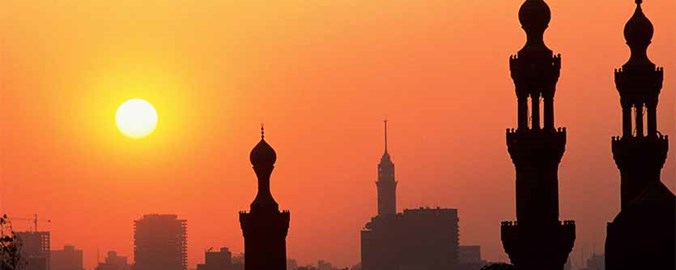
Egyptian Real Estate sees strong Resurgence as Country's moneyed Elite is buying again
Economic and political turbulences saw Egypt's real estate market first take a nose-dive, then descend into a maelstrom of erratic house prices that shot up one quarter only to plunge down the next. The residential market is still dominated by traditional tourist hot spots, such as the Red Sea Riviera resorts El Gouna, Hurghada and Sharm el Sheikh, and Luxor in the evocative Valley of the Kings and Queens.
While Luxor is ideal for those who love nothing better than a Nile cruise - the ships start from there - the Red Sea coast is increasingly popular as a water sports paradise where scuba diving in some of the world's most stunning underwater terrain is just one of many beach activities tourists can enjoy. Prices vary hugely. The purpose-built resorts on the coast, where Hurghada is the most popular, still offer fairly cheap Egyptian apartments.
However, Cairo, which is the country's centre for commerce, has a thriving market were domestic, rather than international buyers dominate. The Global Property Guide reported this autumn that moneyed Egyptian families where buying real estate at a rate not seen before.
Since the election of President El-Sisi three years ago, Egypt has changed considerably in social, political and economic terms. Although formally still a democracy, the country now has a tightly controlled and censored press, and there are a growing number of political prisoners. When Egypt floated the Egyptian pound last year, this caused a dramatic depreciation against major currencies.
This devaluation of the country's currency prompted a period of very high inflation. In May this year, Egypt's headline inflation reached 29.7%, while core inflation stood at a staggering 30.6%, tripling the 10.2% seen in 2016.
For this reason it seems astonishing that the country's residential real estate market is gaining momentum, with a booming construction sector to boot. But seen from an Egyptian point of view, it makes sense to invest in real estate: those who live and work abroad can buy cheaply due to the depreciation of the Egyptian pound - and those living in Egypt can't rely on savings that plummet in value by an annual 30%. So even if real estate depreciated by 14% year-on-year to May 2017, it didn't fall at the same rate as cash.
Both Cairo and Luxor have a thriving rental apartment market, where high rental yields are still the norm. Luxor has begun to interest investors, and newly designated land sitting south of the ancient city has been allocated for high-end development - while at Sharm el Sheikh the opposite will drive up prices in years to come, as here development was halted in an effort not to spoil the remaining coastline.
This year the Egyptian government implemented several reforms that were in line with the three-year IMF reform programme. This included introducing a value-added tax (VAT), amendments to the country's Investment Law to attract more foreign investors, an extension of business hours during which banks are permitted to carry out foreign currency exchanges, and a sharp increase for fuel and electricity prices that are eventually going to be phased out. This should help also to bring inflation down.
Last year, the country's economy saw strong economic growth with 4.3%, up from 4.4% in 2015. In the first quarter of this year, Egypt's economy expanded again by 3.9%, compared to the same quarter in 2016, according the Ministry of Planning. The IMF (International Monetary Fund) expects Egypt's economy to grow by 3.5% in 2017 and by another 4.5% next year. Further improvements to the Investment Law should help to attract foreign investors and drive Egyptian house prices up further.






